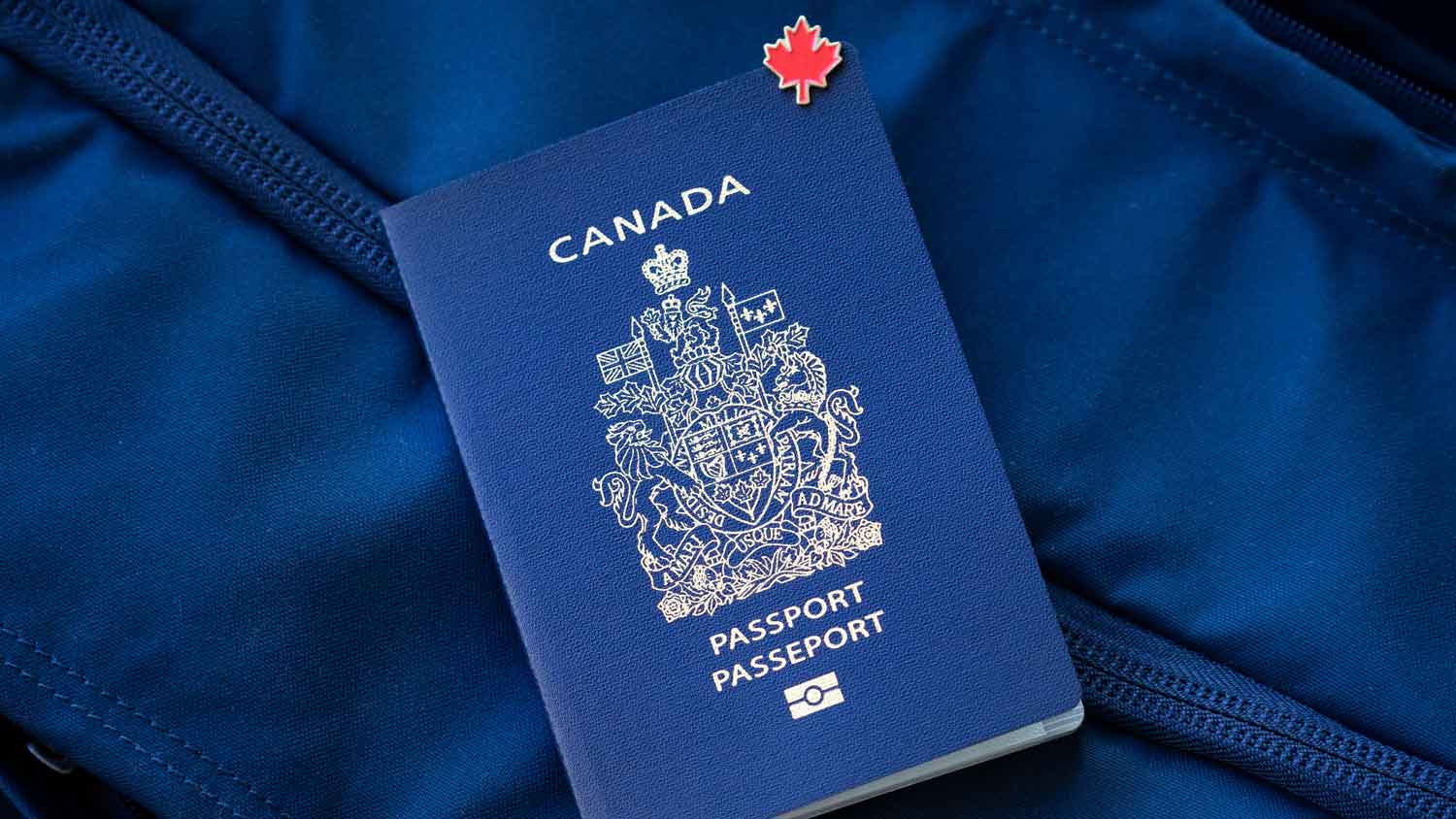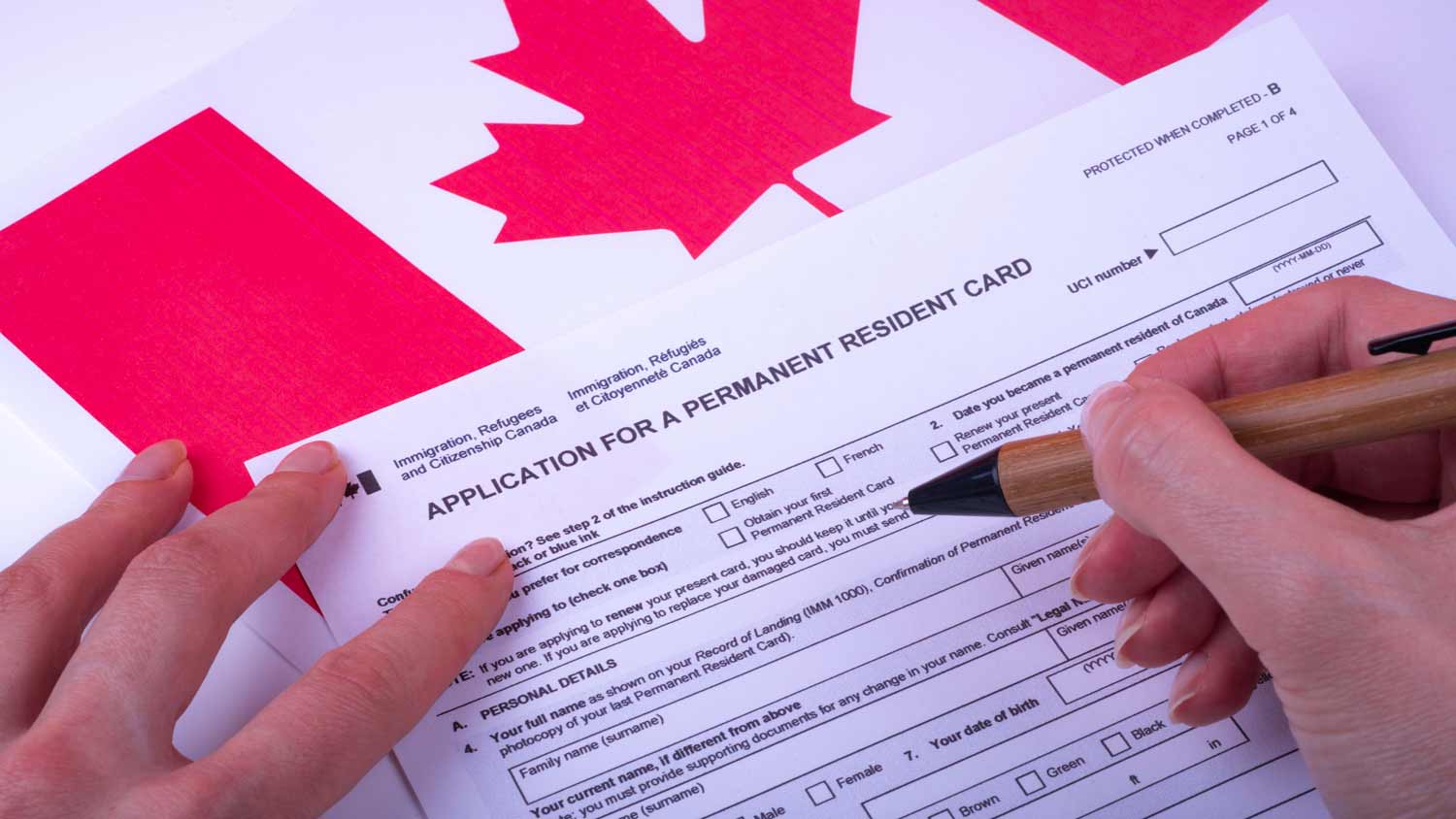
Wondering how much it costs to ship a bed and bedroom set? Start by determining the weight of the furniture and the distance of your move.
Make your move to the land of maple leaves


To move to Canada, you’ll need essential documents, such as Canadian immigrant visas, passports, and lists of personal items.
The cost of moving to Canada varies depending on the immigration method, with fees ranging from $570 to $2,140 CAD.
To work legally in Canada, obtain a Social Insurance Number and register with the Canadian Government's Job Bank.
To become a Canadian citizen, you’ll need to reside in Canada for 3 out of the last 5 years, file taxes if necessary, pass a citizenship test, and demonstrate language skills in French or English.
From diverse landscapes and wildlife to vibrant cities and welcoming communities, Canada has a lot to offer its residents. If you’re wondering how to move to Canada, the goal may be more attainable than you think—Canada is welcoming to immigrants and offers multiple ways to gain residency. Here’s what you need to know about moving to Canada and what your budget for relocation could look like.

As with anyone wondering how to move to another country, those looking to move to Canada will need the necessary documentation in order to gain legal entry and citizenship. Before you venture to the Great White North, ensure you have:
A Canadian immigrant visa and Confirmation of Permanent Residence for each family member accompanying you
Valid passports or travel documents for all family members traveling with you
Two copies of a detailed list of personal or household items you'll be bringing, as well as two copies of a list of items arriving later with their corresponding monetary value
The official website for the government of Canada has more details on all the different ways you can immigrate to Canada.
Here are the main factors that will affect your cost to move to Canada.
Your fees for moving to Canada will depend on your method of immigration. If you have a spouse, children, or other dependents coming with you, there will be additional fees. Visit the Government of Canada’s fee list for more details.
| Immigration Method | Application Fees ($CAD) | Application Fees ($USD) |
|---|---|---|
| Express Entry | $1,365 | $1,030 |
| Business Start-up or Investor | $2,140 | $1,615 |
| Self-Employed | $2,140 | $1,615 |
| Provincial Nominees | $1,365 | $1,030 |
| Family Sponsorship | $1,080 | $815 |
| Quebec-Selected Skilled Worker | $1,365 | $1,030 |
| Caregiver | $1,085 | $819 |
| Refugee | $570 | $430 |
Application fees for Express Entry immigration are $1,365 CAD or $1,030 USD. Express entry is one of the most common and effective ways for gaining Canadian residency. This method of Canadian citizenship is open to individuals with at least 12 months of full-time managerial, professional, or skilled trade work experience.
Application fees for immigration as a business start-up or investor are $2,140 CAD or $1,615 USD. Intended for entrepreneurs, business owners, and professional investors, this visa requires a minimum net worth of $10 million Canadian Dollars for investors.
Application fees for immigration as a self-employed person are $2,140 CAD or $1,615 USD. Self-employed individuals can apply for a visa as long as they intend to work within Canada’s athletic or cultural activities career fields and can demonstrate that they have sufficient funds to finance their business endeavors in Canada.
Application fees for Provincial Nominee Program immigration are $1,365 CAD or $1,030 USD. Becoming a Canadian resident via the Provincial Nominee Program (PNP) is much less common. This involves a specific Canadian province selecting an individual for residency who possesses the abilities, educational background, and professional expertise to make a meaningful contribution to the economic development of that particular province or territory.
If you have family members that are living in Canada, you can obtain a visa via family sponsorship. This is where a spouse, partner, parent, grandparent, child, or other eligible family member agrees to sponsor your Canadian citizenship. A sponsor must be able to support you financially when needed so that you won’t require social assistance from the government.
Application fees for Quebec-Selected Skilled Worker immigration are $1,365 CAD or $1,030 USD. This is similar to Provincial residency but is aimed at people specifically interested in living in Quebec. The Quebec government selects individuals based on factors such as the person’s level of education, French language skills, and age.
Applying for a Canadian visa as a caregiver costs $1,085 CAD or $819 USD. Individuals coming to Canada to care for a Canadian resident or citizen can apply for a Caregiver visa.
Fees for applying for a Canadian visa as a refugee are $570 CAD or $430 USD. People fleeing their home countries for safety reasons can apply for residency through a refugee application. Private group sponsorships are available to assist with the application and relocation costs.
Logistical expenses for moving to Canada can vary significantly based on where you’re located, where you’re going, what you’re taking, and how you’re getting there. For example, you may need to factor a plane ticket into your budget, or the cost of mileage for your vehicle (or one you’re renting).
If you’re hiring a local moving service, many will charge by mileage and by weight, so it’s a good idea to have numbers in mind before you call for quotes. As a ballpark estimate, traveling 500 miles can cost anywhere from $1,000 to $7,500 or more, while going over 2,000 miles can cost upwards of $9,000 or more. Not all types of moving companies offer moving services to Canada, so be sure to look for long-distance movers who can help you complete the transition. Although it’s always optional, it’s also customary to tip your movers between 10% to 20% of your total moving cost, or between $4 to $10 per hour, per mover.
Moving to a new country can be a significant expense, but there are ways to pare down your budget. If you’re adventurous, minimalistic, or a combination of both, there’s always the option of selling off your belongings and starting fresh. This allows you to cut the major cost of hiring movers, renting a vehicle, or shipping your belongings to your new home. Apps such as Facebook Marketplace and OfferUp are excellent options for selling your belongings locally without incurring any fees.
Another way to save big, especially during a long-distance move, is to shop around for the best deal. Obtain multiple quotes from different movers and compare costs, or if you’re moving yourself, compare multiple options for vehicles. Moving in the winter can also save you big during a move. Professional movers and rental companies will be in their off-season, meaning rates will be lower and they’re more likely to cut you a deal.
To work legally in Canada, obtain a Social Insurance Number (SIN) from a Service Canada Centre, ensuring you have your primary documents with you, even if you are a temporary resident. If you’re heading to Canada without a job lined up, be prepared to dedicate significant time and effort to finding employment. If you don’t have a friend or family member in Canada to stay with in the meantime, plan to have at least six months of living expenses saved to support yourself during the transition.
As for finding a new position, register for the Canadian Government's Job Bank and keep an eye on it for job postings. As a new immigrant, you might face challenges such as your credentials not being recognized. Lacking Canadian work experience and not being proficient in French could also make your job hunt more difficult.
When you're getting ready to move to Canada, start by looking for apartments or houses in the area where you want to live. It's essential to find a place that’s well within your budget, considering all the other costs of moving. If you can, visit the area a month or two before your move to check out potential homes for yourself. In case you can't find a permanent place before leaving, you might want to consider staying in a hotel or short-term rental until you find the right place to live.
While Canada provides free healthcare to its residents and citizens, it's essential to buy private health insurance to ensure coverage for the first three months after your arrival. The specific providers may differ based on the province you're in. Refugees moving to Canada might be covered by the Interim Federal Health Program (IFHP) and may not need private insurance. However, for everyone else, purchasing private health insurance is necessary until they obtain a government health insurance card.

Once you’ve become an established Canadian resident for a few years, you can apply for Canadian citizenship. Be aware that there are a number of situationsthat may prevent you from becoming a Canadian citizen, such as being charged with certain crimes either in Canada or outside of Canada. To qualify, you’ll need to:
Reside in Canada for at least 3 out of the last 5 years
File taxes if necessary
Pass a citizenship test
Demonstrate your language skills in either French or English
Once you meet the criteria, you’ll fill out the application form, gather the necessary documents, and pay the fees ($630 CAD or $475 USD). The processing time varies, but once approved, you'll attend a citizenship ceremony and take the Oath of Citizenship. After that, you'll officially be a proud Canadian citizen, enjoying all the rights and benefits that come with it.
From average costs to expert advice, get all the answers you need to get your job done.

Wondering how much it costs to ship a bed and bedroom set? Start by determining the weight of the furniture and the distance of your move.

Shipping a motorcycle is easier said than done. Here are the different motorcycle shipping options available and how much they cost.

The cost to move a one-bedroom apartment depends on distance, weight, access, and more. Check out how much movers cost for a one-bedroom apartment.

Moving an aquarium entails packing it securely, keeping your pets safe, and maintaining the balance of beneficial bacteria. Learn how to move a fish tank.

When it’s time to move, it’s tempting to try to save money by doing it yourself. But there are seven reasons why you should hire a moving company.

When you need to move gym equipment, using a few crucial tips can save your back. Learn how to move gym equipment in this informative guide.